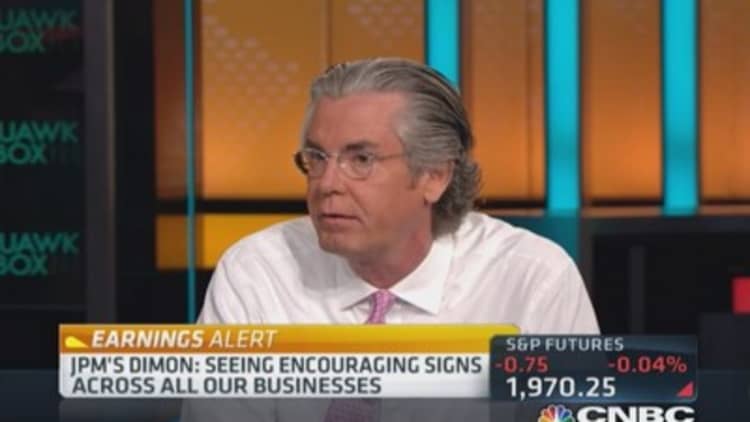
Inflation concerns about rising wages as the labor market and the economy continue to recover are unfounded, Pimco Chief Economist Paul McCulley told CNBC on Tuesday.
"An increase in wages is good thing," he said in a "Squawk Box" interview.
Pimco founder Bill Gross added in an op-ed in USA Today, "Income equality is good for business. Raising the minimum wage can lead to higher corporate earnings. Main Street is Wall Street's best friend."
"Wages going up is the next leg of success of getting out of a liquidity trap," said McCulley, whose comments came ahead of Federal Reserve Chair Janet Yellen's appearance before the Senate Banking Committee on Tuesday. It's the first of two days of testimony on Capitol Hill.
Read MoreLooks like the Fedwants to have even more power
"The Fed has been successful against a great deal of odds and a great deal of criticism on Wall Street on getting us out of this liquidity trap. I think today is a day of celebration for Janet [Yellen], not an issue of having to defend herself," McCulley said.
"We're seeing underlying healing blossom in the American economy," he continued. "You can claim victory on the growth forecast associated with the 'new normal.'"
The "new normal" was coined by Pimco in 2009 to describe an expected three- to five-year period of slow economic growth, high unemployment and debt problems.
A couple months ago, Pimco started floating a new thesis called the "new neutral," suggesting exceedingly low real Fed policy rates going forward.
"The 'new neutral' is a different idea, which is that the equilibrium level for the Fed Funds rate is dramatically lower going forward than it was prior to 2008," McCulley said.
"We know the Fed is going to tighten in our lifetime, most likely within the next year or so. And actually that is a good thing. Zero is not a natural place for the Fed to be. It's called a liquidity trap. You don't want to be there. The Fed needs to get off zero in reasonable time frame," he added.
Read MoreWhy traders are wrong about the Fed: Insana
Whenever the Fed begins increasing interest rates next year, the precise time doesn't matter from an economic standpoint, McCulley said. "As a market matter, it does matter from a standpoint that it will be the first rate hike of the first cycle in almost a generation on Wall Street."
Where does the Fed halt its rate increase once it begins is the key question and the central theme of the "new neutral," McCulley said. "We think they will stop at 2 percent, not 4 percent. And that is profound."
—By CNBC's Matthew J. Belvedere


